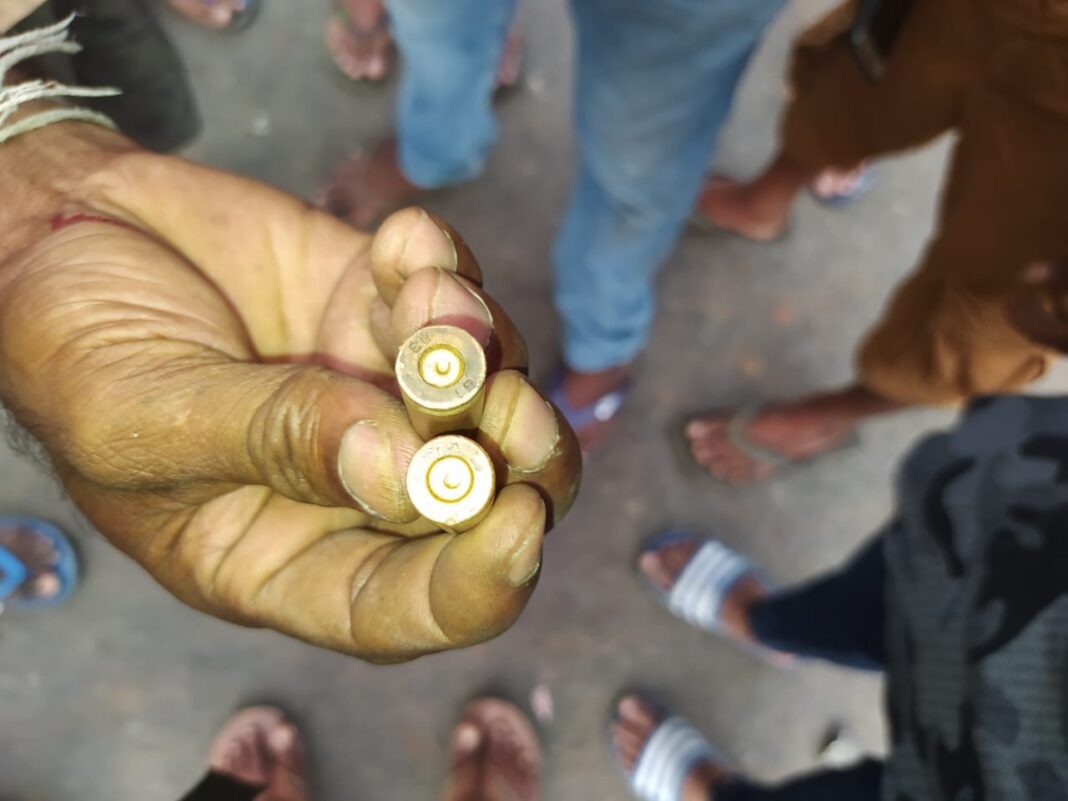Image: some of the live ammunition used by police in Rambukkana yesterday.
The Sri Lankan authorities must immediately stop law enforcement officials using unnecessary or excessive force to respond to protests against rapid inflation and shortages of food, fuel, and electricity, said the International Commission of Jurists today.
The ICJ deplores the use of live ammunition to quell protests in Rambukkana, Sri Lanka on 19 April 2022, which resulted in the death of one protestor and severe injuries to many others.
“Police and other law enforcement officials have failed to respect people’s human rights, including their right to protest, and to protect them from violence by others”, said Saman Zia-Zarifi, Secretary General of the ICJ.
The ICJ is further concerned at several other human rights violations that have taken place over the course of ongoing protests in Sri Lanka. Earlier this month, several protesters and journalists who covered the protests were severely beaten up by law enforcement authorities. Video footage circulating on news and social media platforms shows several disproportionate measures used to disperse crowds and quell the protests, including the firing of tear gas and beating of protestors. There have also been reports that some protestors were tortured after being detained.
Saman Zia-Zarifi added that “It is crucial that investigations into the shooting incident at Rambukkana be in compliance with Sri Lanka’s international legal obligations”.
With respect to the use of force, the Sri Lankan authorities are bound by international human rights law and standards. The UN Basic Principles on the Use of Force and Firearms by Law Enforcement Officials require that any use of force be exceptional, necessary and proportionate, and that lethal force may only be used when strictly necessary to protect life.
As the UN Human Right Committee has affirmed, the right to peaceful protest is protected under Article 21 of the International Covenant on Civil and Political Rights (ICCPR) whether they are stationary, such as pickets, or mobile, such as processions or marches. Sri Lanka is bound by the ICCPR. The Human Rights Committee has also clarified that “To the extent that an event may create disruptions or risks, these must be managed within the framework of the Covenant.”
While most protestors have acted peacefully, in some instances certain individuals have resorted to violence. The ICJ calls on all persons to avoid violence during the protests.
